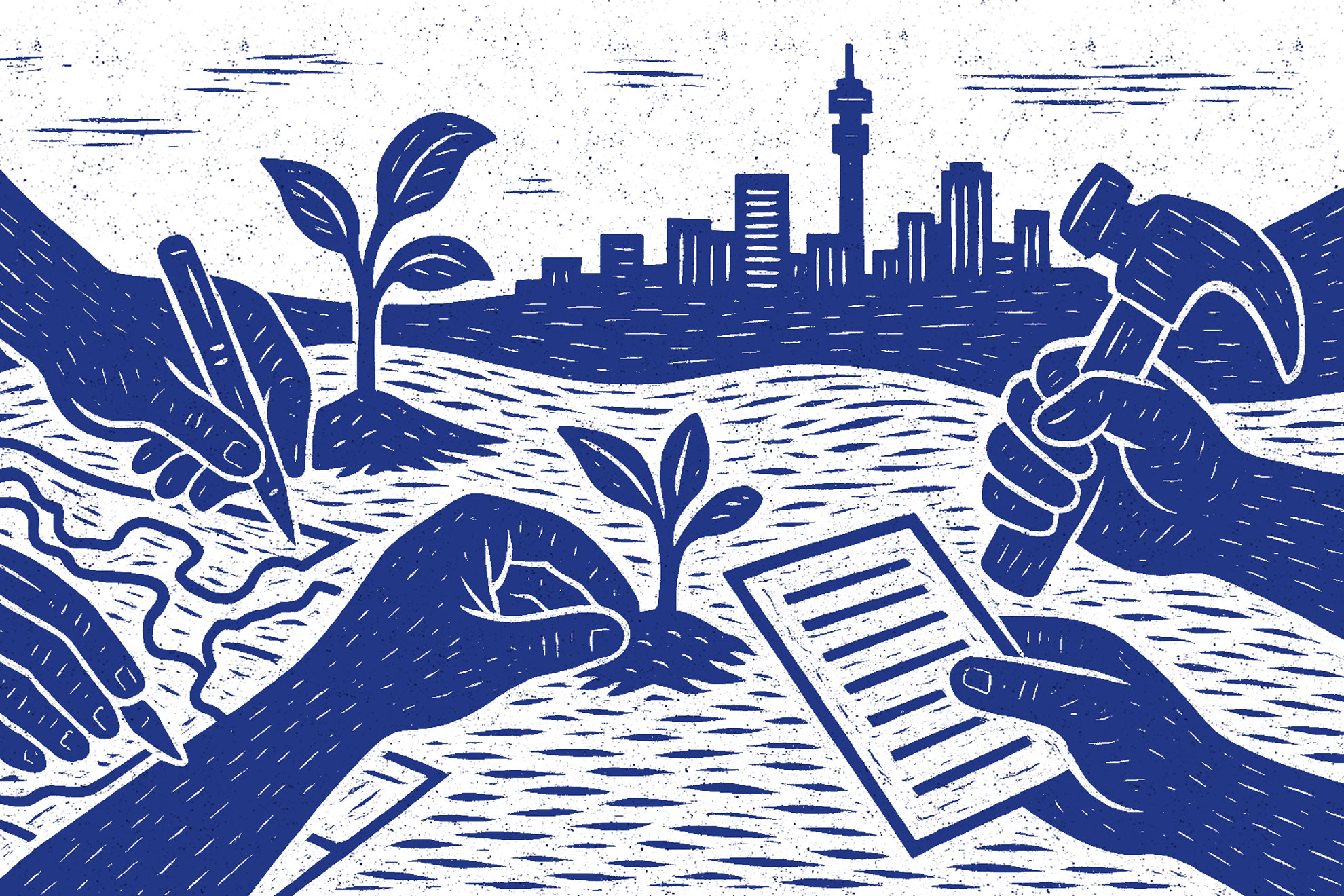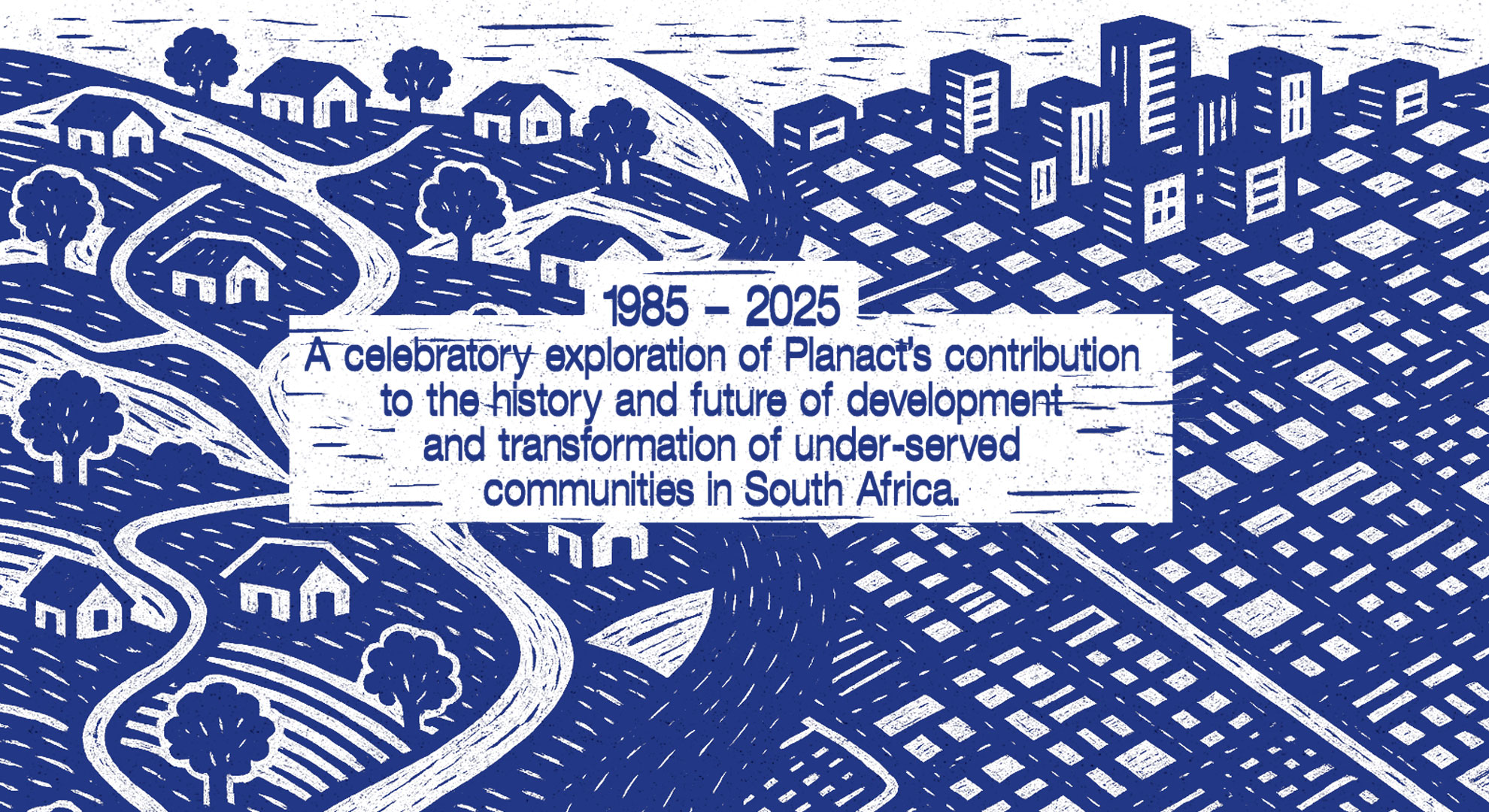
Planact 1985 – 2025
This series of articles was co-created through exploratory dialogue on the lessons learned from Planact’s experience working in development and transformation in pre- and post-apartheid South Africa. These lessons reflect on the history and future of the nation, particularly for people living in under-served informal settlements. The articles were written through a series of engagements with current and former ‘Planacters’, whose voices are prominent in each article. The articles should provoke thought and questions about contemporary development in South Africa, and lead to further dialogue and problem solving engagement.
Through its enduring commitment to change in under-served South African communities, Planact has witnessed successes and failures in the development and transformation project, and shares some of the salient lessons learned from its experience here, in the hope that these lessons can be useful in South Africa’s ongoing journey to dignity, equality and inclusion.
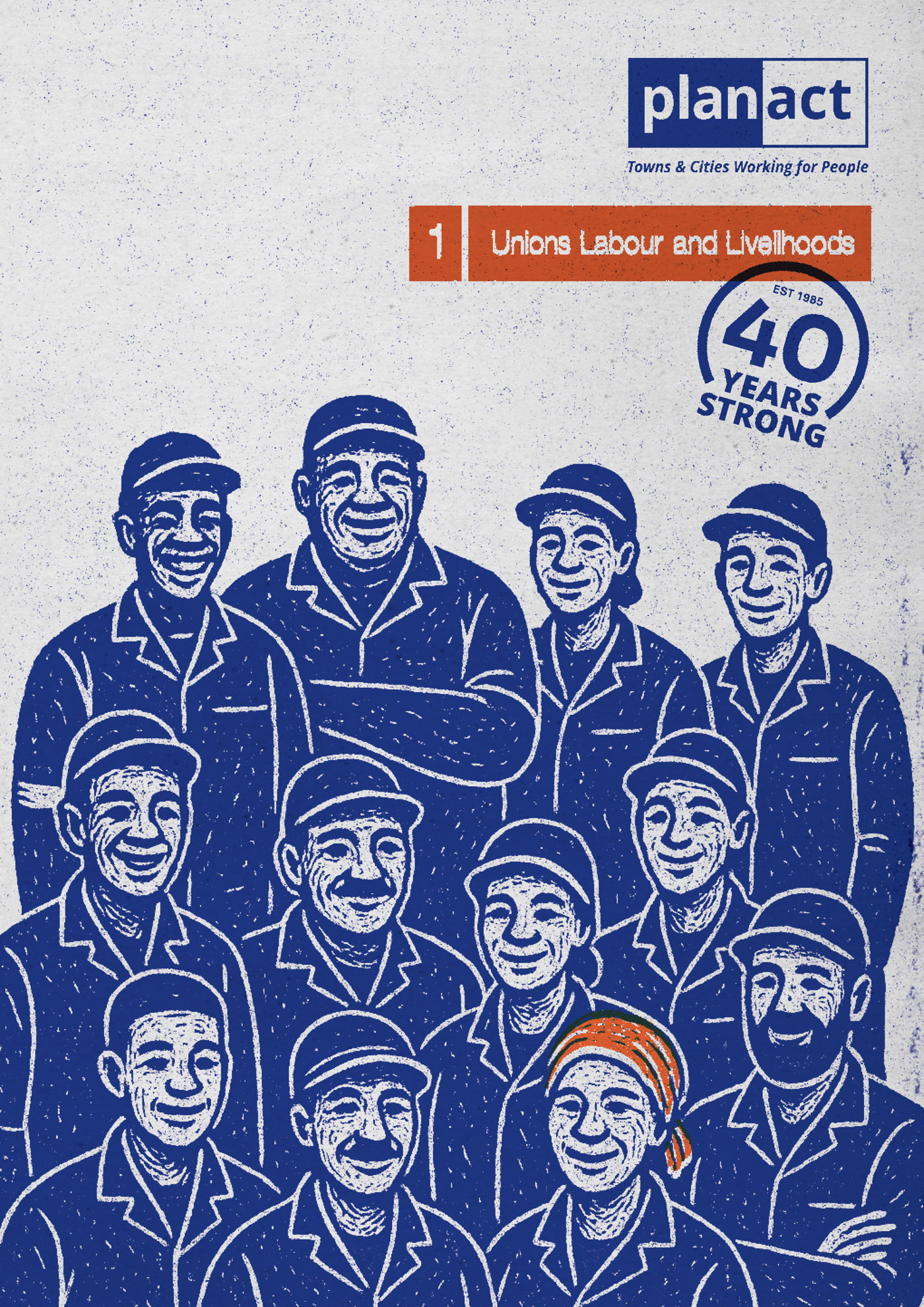
Unions, Labour & Livelihoods
Activist unions gave birth to a labour movement in South Africa which was instrumental in dismantling apartheid. While gains were won against the apartheid government, many of the human challenges of poverty and inequality persist today. This history explores Planact’s evolving response to poverty in South Africa.
- Unions, Labour & Livelihoods
Archival Material
- Housing and Feeding in Eskom Survey 1988
- Completed Housing and Feeding in Eskom Survey 1988
- Housing and Feeding in Eskom Report 1989
- NUM Housing and Feeding Policy Discussion Document 1989
- NUM Housing Policy Framework 1990
- Planact Annual Report 1988-1989
- Ch 9: Poverty and Local Economic Development, Making Towns and Cities Work for People 2005
- COPE Discussion paper 1990
- Co-op Voice Newsletter March 1991
- Planact Annual Report 1988-1989
- Planact Annual Report 1994-1995
- Planact Social Empowerment Fund Evaluation 2025
- Social Employment Case Study Report 2023-2024
- Planact’s Social Employment Fund Project Impact 2024
- Worker’s Day 2024: Celebrating the 1000 Social Employment participants
- Ripple effects of social employment in Skoonplaas
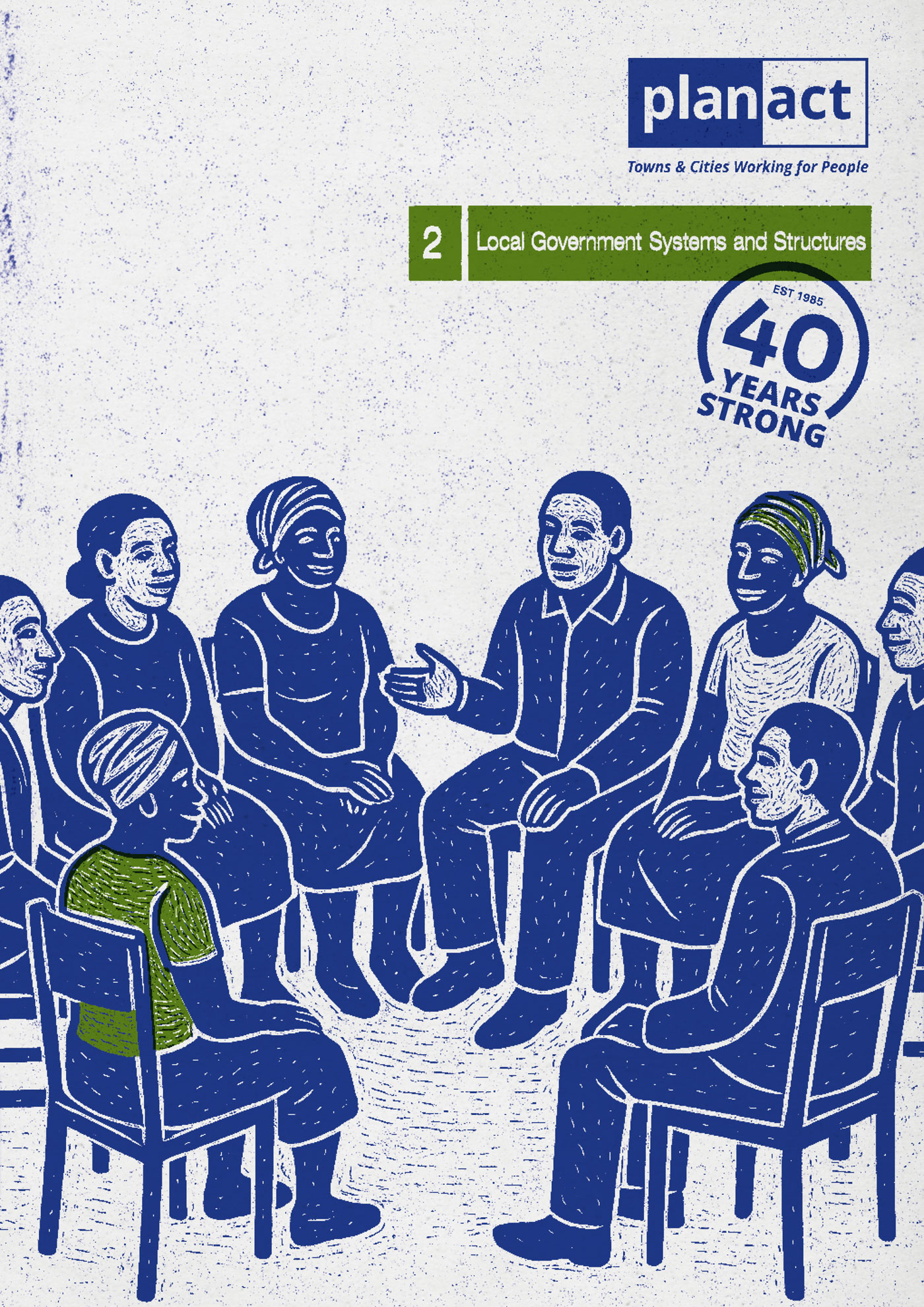
Local Government Systems & Structures
Strong emphasis was placed on the role of local government in delivering transformation in the new dispensation. Planact saw the opportunity to support communities and local government to build mutually supportive relationships and deliver improved living conditions together. Local government has struggled to reach the goals of inclusive collective governance outlined in the early ambitious policies and Planact continues to engage this interface between community and local government.
- Local Government Systems & Structures
Archival Material
- Planact Annual Report 1992-1993
- Planact Annual Report 1994-1995
- Alex Accord Comic 1991
- Alexandra in Chicago City News May 1991
- Alexandra Article Housing in Southern Africa March 1990
- Hand Drawn Alexandra Context Map 1991
- Planact Annual Report Excerpt on Alexandra 1990
- Eastern Transvaal Councillor Training Workshops Report 1995
- Planact Councillor Training Manual 1995
- Bekkersdal Civic Association Budget Proposal 1998
- Planact Annual Report 2001
- Planact Annual Report 2002-2003
- Planact Annual Report 2015-2016
- Thembelihe Community Cohesion Against Xenophobia
- Thembelihle Crisis Committee leaders and Planact interview with Kasie FM
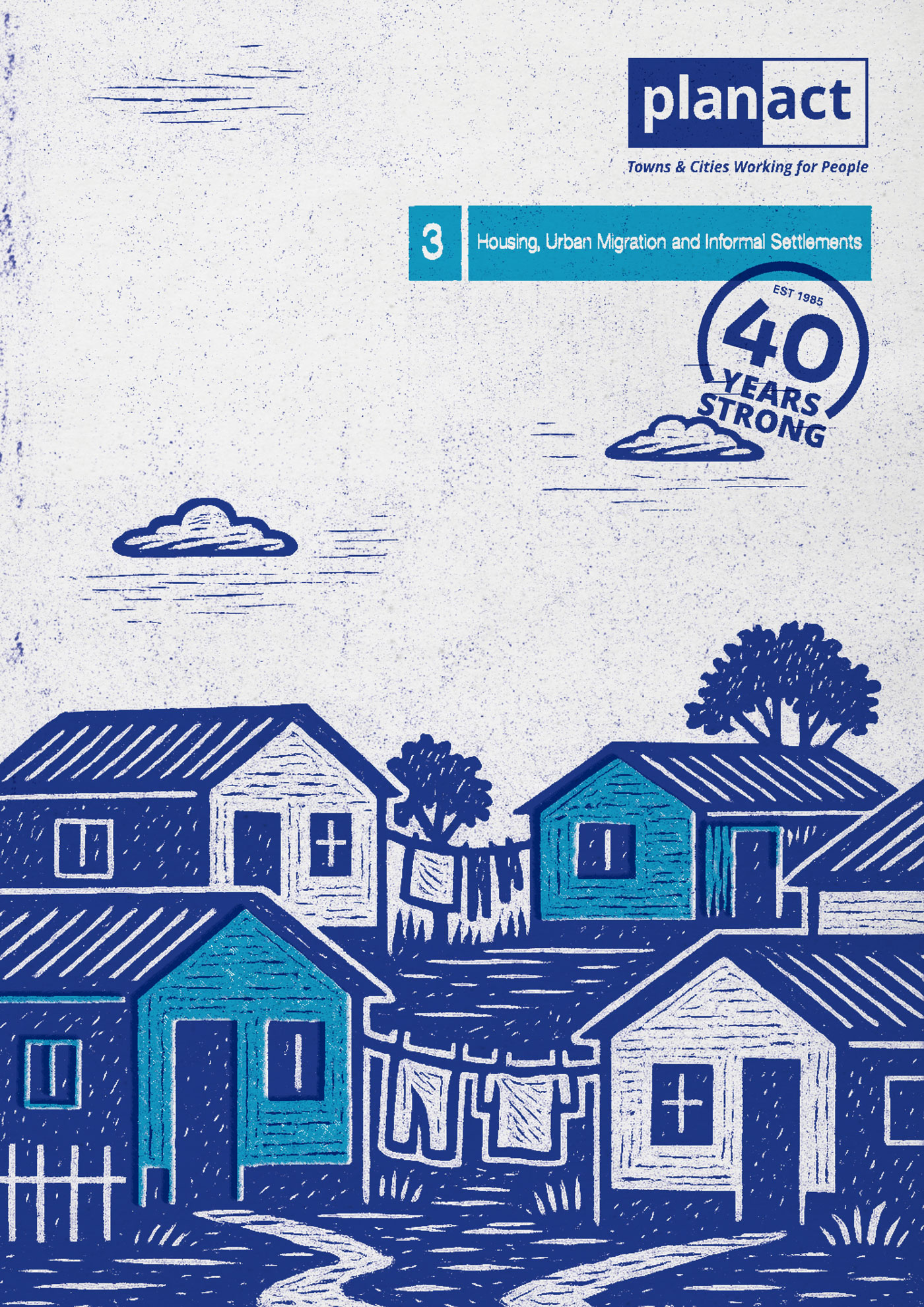
Housing, Migration & Informal Settlements
Planact’s work with housing was also initiated through work with unions and expanded from there to include communities beyond union members. During the post-apartheid period of growth and development Planact explored different models of cooperative and collective housing. Sadly no housing initiative has been able to keep up with the rate of urban migration in South Africa and informal settlements have become the primary site for working with urban under-served populations.
- Housing, Migration & Informal Settlements
Archival Material
- Ch 15_PHP in Vosloorus_Making Towns and Cities Work for People_2005
- Planact PHP Vosloorus Presentation 2004
- How to Keep the ‘People’ in PHP_An Evaluation of the Vosloorus People’s Housing Process 2005
- Muldersdrift News Article_The Sowetan November 2007
- Planact Annual Report 2001
- Case Study of Ethembalethu 2008 (World Bank Working Paper no.130)
- Planact HIV and Housing Summary 2007
- Project Plan for Masisizane Women’s Cooperative Ivory Park 2007
The Role of Civil Society
Planact has always seen itself as a ‘third party’ – supporting communities and government to negotiate mutually beneficial relationships. Interactions between communities and government have become increasingly violent and conflictual as the dreams of the post-apartheid project have become more elusive. Planact facilitates and mediates: building trust, a shared vision, shared solutions, enhancing capacity. Planact ‘oils the machine’ offering methodologies for collectively implementing and enhancing policies which have struggled to deliver transformation.
- The Role of Civil Society
Archival Material
- Wattville Social Audit
- Thembelihle Plus Codes
- Asivikelane
- Corridors of Freedom
- Urban Sector Network
- Zandspruit
- The Planact Way
- Wattville Precinct Plan 2018
- Wattville Social Audit Report 2017
- Inter Metro Dialogue on Social Audit in Gauteng in February 2018
- Scaled Up Social Audit: Monitoring chemical toilets in Ekurhuleni
- Contrast on Sanitation Service Standards for Chemical Toilets in Ekurhuleni
- GIZ VCP Case Study Thembelihle 2024
- Impacts of digital addresses in transforming informal settlements in South Africa
- Asivikelane Press Releases 2021 + 2022
- Planact Annual Report 2020-2021
- Planact Annual Report 2021-2022
- Why South Africa needs to flatten the Covid-19 curve in informal settlements
- Asivikelane in Action – City of Tshwane
- Asivikelane in Action – City of Ekurhuleni
- Corridors of Freedom Mapping 2018
- Corridors of Freedom Focus Group Reports 2018
- Planact Report on Governing the Future City 2018
- Ch 2_Urban Sector Network_Making Towns and Cities Work for People_2005
- Ch 5_Civil Society Funding_Making Towns and Cities Work for People_2005
- Ch 6_NGOs and Civil Society_Making Towns and Cities Work for People_2005
- Ch 11_Role of NGOs_Making Towns and Cities Work for People Planact_2005
- Urban Sector Network Peoples Housing Process Report
- Urban Sector Network Report 1990
- Ch 14_Conflict and the Role of NGOs_Making Towns and Cities Work for People_2005
- Conclusion_The Planact Way_Making Towns and Cities Work for People_2005
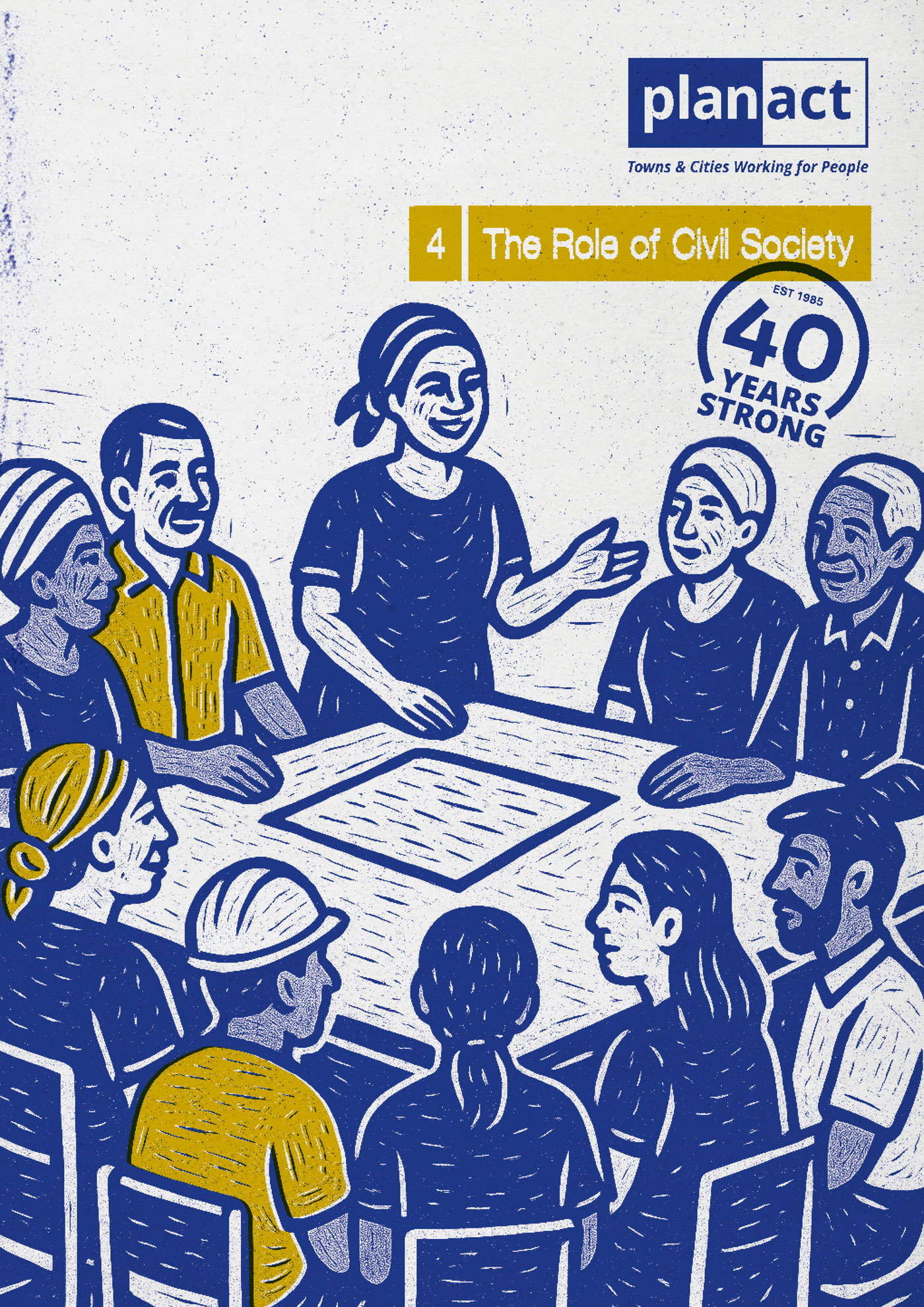
What is community?
There are as many definitions of community as there are communities. ‘Community’ lies at the centre of Planact’s history and is its reason for existence. The reflection here offers insight into concepts which underpin work in under-served settlements.
‘Community is anyone and everyone who is there’ (Andrew).
‘Community is who belongs. And everyone really should belong. Belonging is a fundamental human need’ (Jackie).
- What is community?
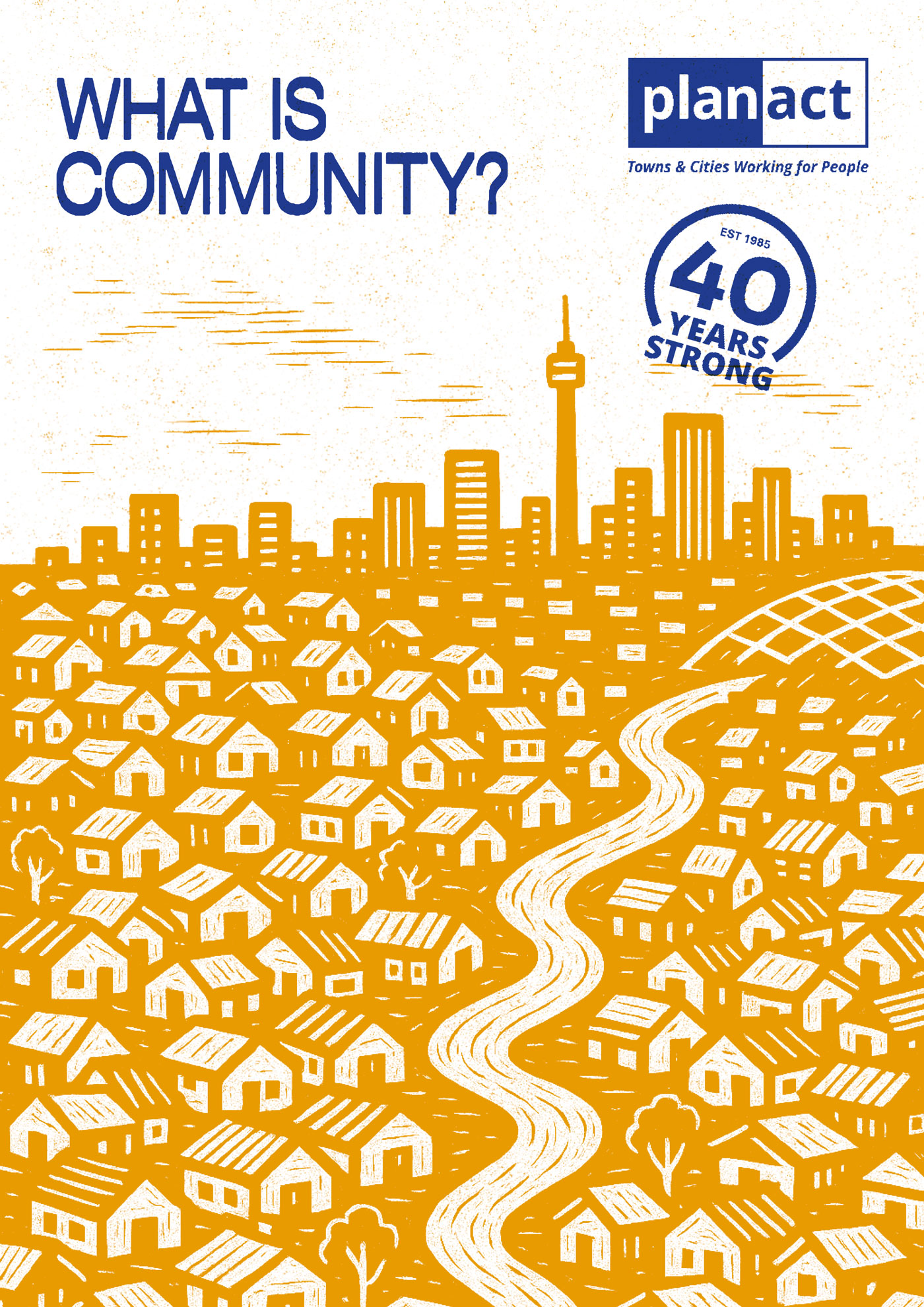
So What?
Through the lenses of livelihoods, housing, local governance and civil society action these histories shed light on South Africa’s post-apartheid journey of transformation, and prompt some pressing questions about our future.
For the first 17 years post-apartheid, poverty rates in South Africa declined as the country enjoyed the surges of optimism and growth accompanying the political transition. Since 2011 poverty rates have again grown steadily and today the majority of our population suffer unemployment, poverty and deprivation. Planact has worked with the mechanisms for mitigating exclusion and deprivation for the duration of its existence and prompts us to ask ourselves some critical questions about our history, to help us gain insight into our hopes, dreams and plans for a better future.
While the TRC confronted the major crimes, trauma suffered as a result of the everyday harms of apartheid has gone largely unacknowledged. What is the role of trauma in eroding our relationships, and how do we surface the compassion necessary to create a more inclusive vision of the partnerships required to shape a better future?
During the transition the new government undertook to solve the problems of apartheid. This promise was made without full knowledge of how complex and difficult this would be, and of the necessity to work together with communities, civil society and the private sector. How can the vision for local government be reframed to offer tangible opportunities for collective action for improved local development?
Planact has forty years of experience and insight gained working with the most marginalised and deprived groups in South Africa, the people who need intervention and change the most. How does South Africa leverage the lessons and expertise which Planact carries, to shape policy, to craft better relationships, to deliver better outcomes for the future?
Timeline
Planact’s history is shaped directly by South Africa’s history. This timeline sets out the major milestones of post-apartheid transformation, the examples from each theme in this history, and demonstrates how much has happened in the last forty years, and yet how much more still needs to happen. Planact’s journey is interwoven with South Africa’s journey and understanding the interface between the nation and the organisation sheds light on the complexity of the transformation project in South Africa.
- Timeline

Contributors
Planact’s history is shaped directly by South Africa’s history. This timeline sets out the major milestones of post-apartheid transformation, the examples from each theme in this history, and demonstrates how much has happened in the last forty years, and yet how much more still needs to happen. Planact’s journey is interwoven with South Africa’s journey and understanding the interface between the nation and the organisation sheds light on the complexity of the transformation project in South Africa.
WHO MADE THIS HISTORY COME ALIVE?
This list of contributors does not aim to be comprehensive, since it cannot possibly acknowledge all those who have participated in Planact’s work over the past forty years. It offers a very brief introduction to those who have been instrumental in the history project. Many team members have over the years moved on from Planact into local, provincial and national government, contributing in countless ways to the history of South Africa, Former Planacters contributed to the Constitution and Local Government legislation, developed concepts and models that have enabled citizens’ engagement with government institutions in local development processes, have contributed to capacity enhancement and review of policy.
As Jackie said, ‘If you look at any Ministry or Department, you will see that some of the most innovative, creative and committed people within the state machinery comes from within our Planact community’.
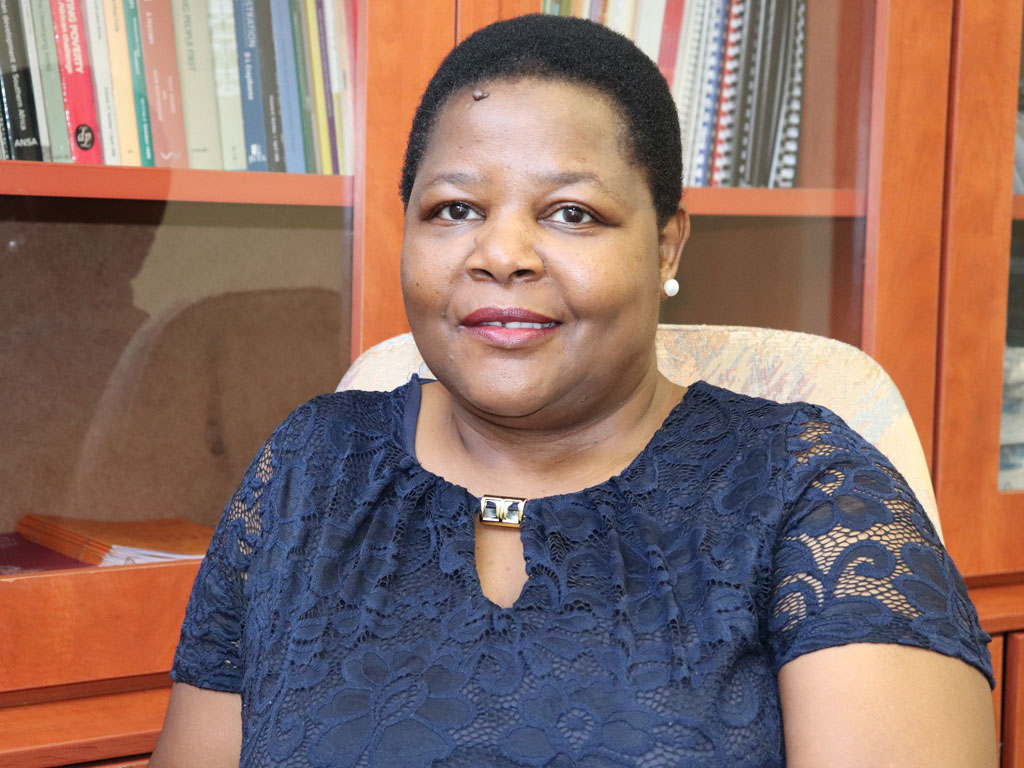
Shumani Luruli
Shumani came to Planact in 2003, fresh from the rural towns of Limpopo. Her personal life experience prompted her to learn more about local government and her love of working with communities shines through in her contributions to this history, keeping it honest to the realities of community experience. She is a development activist who believes in democratic and social citizenship and who is not afraid to speak truth to power.

Mike Makwela
Mike joined Planact in 1999. His CV deserves a history of its own, reflecting in many ways the best of Planact and South Africa. At 19 he raised R3 million to build a multi-purpose centre in Tembisa, before being flown to New York City on an exchange programme. Fortunately for all of us, Mike returned and continued to build a career here, incorporating voter education, rights and housing. Mike brought texture and life to some of the most moving and informative examples in this history: Muldersdrift Home Trust Foundation, PHP Vosloorus and Tamboville

Jackie Mantsolu Sejanamane
Jackie has thirty years’ association with Planact, starting as an employee in 1995. Today, as a public policy practitioner, Jackie is a Planact board member. Jackie is a public policy practitioner with long experience of working with underserved and vulnerable communities and enabling community voices in government platforms. Jackie has asked fearless and probing questions throughout this project, both in terms of content and context and has provided access to invaluable institutional memory.

Fred Kusambiza–Kiingi
Executive Director of Planact
Fred joined Planact in 2013, imagining it would be a short term ‘calling’, as the organisation was struggling at the time. Fred is an urban development planner with more than 25 years of experience in various aspects in policy reform, project planning, designing and development, for the urban and peri-urban environments. Fred has networked the history project with the various contributors, searched through his records for historical documents and brought professional and personal insights into the work and the rich tapestry of themes and programmes over the years.
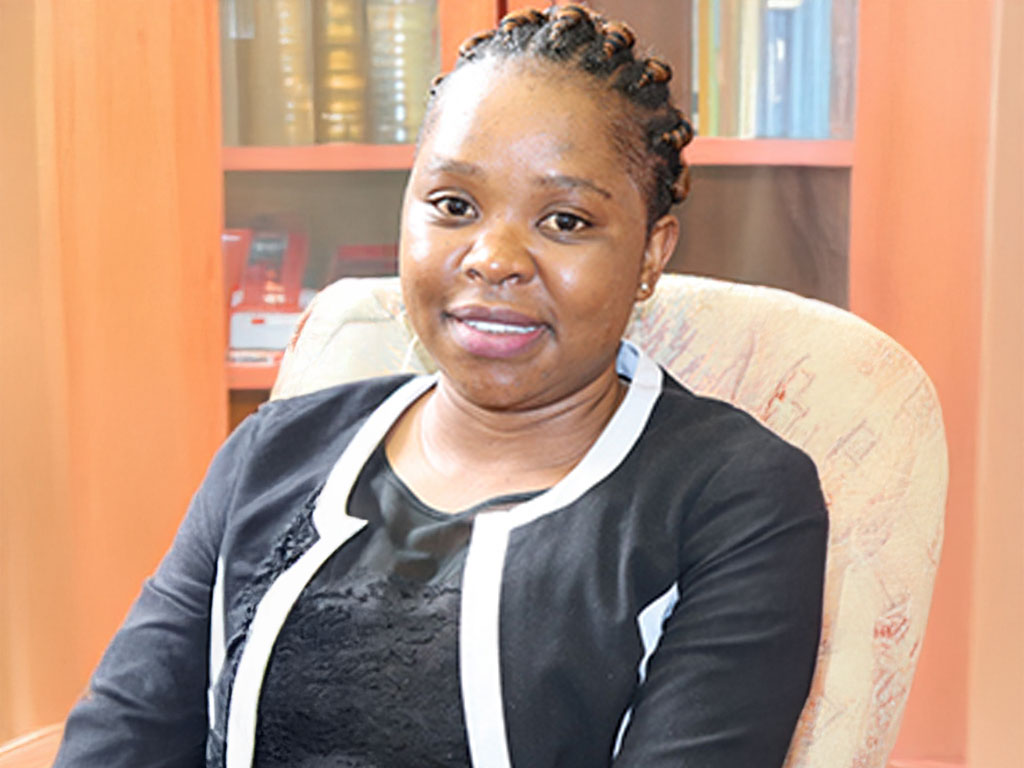
Chelsea Ndlovu-Nachamba
Chelsea has driven the crucial communications strategy underlying this history. She joined Planact in April 2016, taking responsibility for coordinating communication and resources, branding, and stakeholder engagement, as well as advocacy campaigns for Planact’s programmes. Chelsea is qualified in development communications as well as local government public law and, like many of her colleagues is constantly studying. This history is designed to prompt reflection and dialogue on South Africa’s history and future and those outcomes are dependent on and deeply entwined with communications. You are reading this bio because Chelsea’s communications have ensured that this rich history has reached its audience!
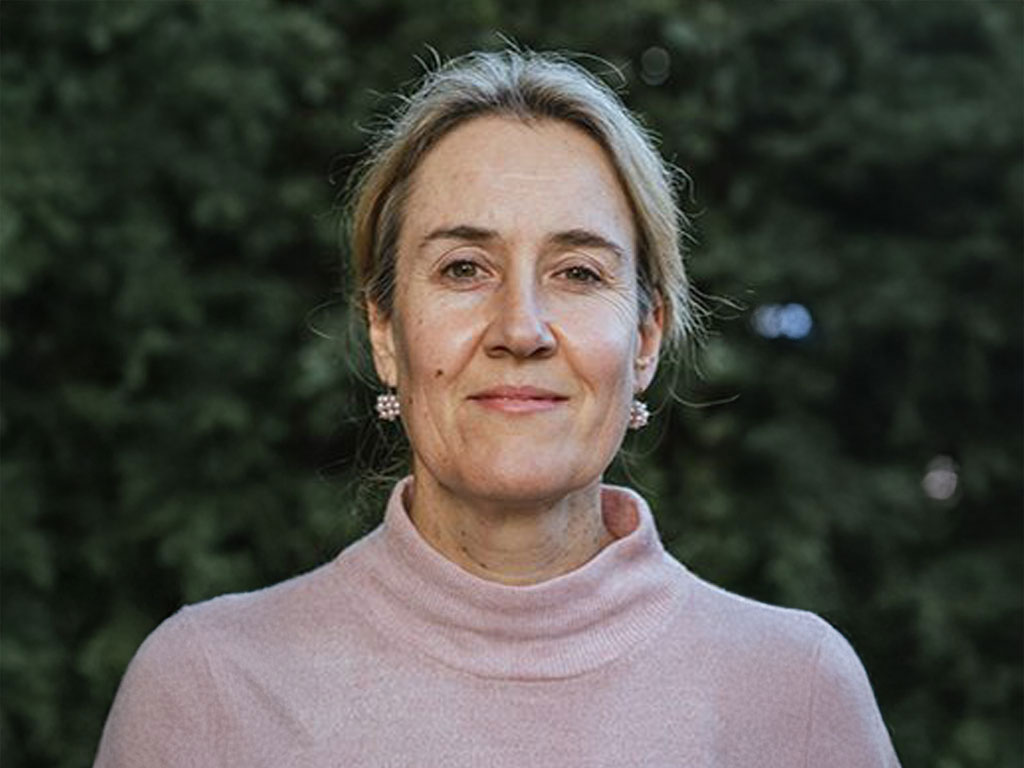
Tamzin Hudson
Tamzin has been in the Operations Manager of Planact since 2023. Her expertise lies in land reform and tenure practices as well as informal settlement upgrading processes. Tamzin has been an essential voice during the compilation of this history, with her commitment to prioritising community voices and to deepening and expanding democratic processes in Southern Africa.
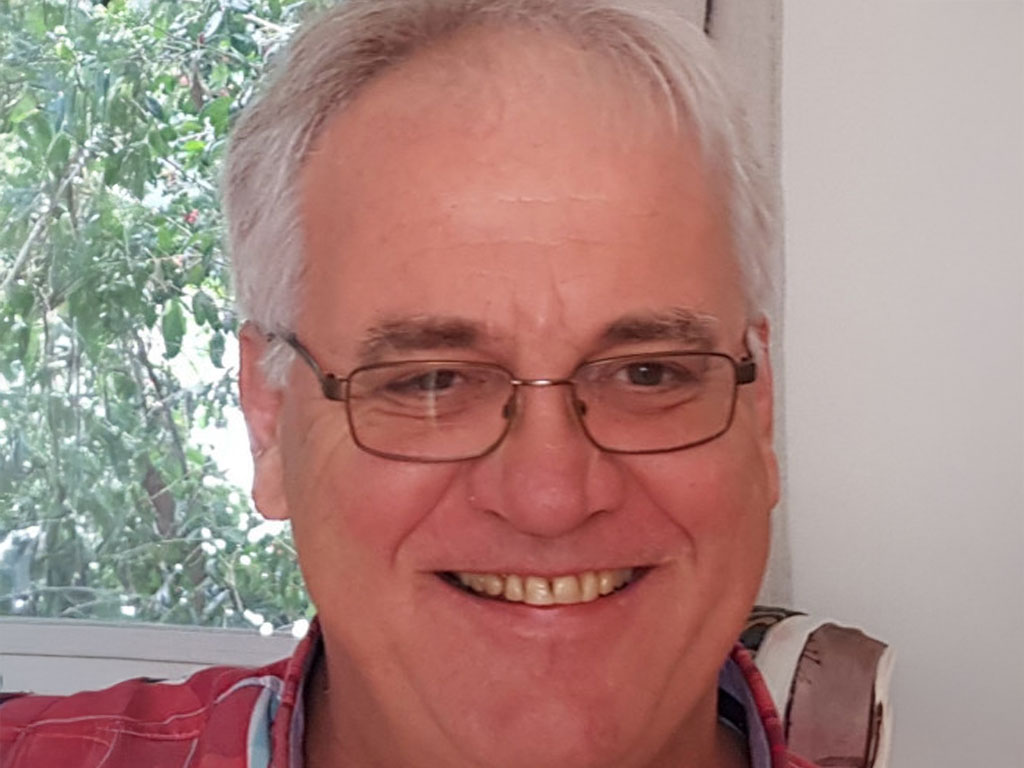
Roland Hunter
Roland joined Planact immediately after his release as a political prisoner. During his tenure, between 1989 and 1993, Planact grew from 9 staff to 42. Roland has gained deep experience of public finance and management, holding senior executive leadership positions in different spheres of government in South Africa. He has brought his personal experience of the early years at Planact, his sharp insight on local government policy and strategy, as well as a deep knowledge of financial and institutional governance issues, to this history. He generously shared his perspectives about both Planact and the environment in which it works.

Brian Moholo
Brian, who came from a trade union background, first joining Planact in 1991, was fascinated by their methodology and wanted to both add value and learn ‘something new’. He shifted from being a part of community struggles to being a service provider to the community, no longer talking on behalf of the community, now empowering communities to be able to better stand for themselves. Brian distinguished between building negotiation skills in communities and providing technical expertise in support of their objectives. Brian engaged on some crucial conceptual discussion about ‘what is community’ and the role of civil society. Brian was instrumental in the Urban Sector Network and the work with cooperatives. He has provided detail that would otherwise be missing from this history.

Andrew Boraine
Andrew became Planact’s 5th employee in 1989. He is an international expert on economic and urban development and partnering for systems change, who has worked in the development sector for more than 41 years. He has over five decades of experience in South Africa’s political, local government, urban, economic, and sustainability change processes. He has held senior executive posts in national government as well as serving as Cape Town’s city manager from 1997 to 2001. While making significant contributions to the local government statutory framework, he has established and led three collaborative intermediary organisations: the South African Cities Network (SACN), the Cape Town Partnership (CTP), and the Western Cape Economic Development Partnership (EDP). Andrew’s knowledge of both Planact and the shifting context over the decades has been core to this history project.

Emma De Villiers
Emma is the Executive Director of Fixed.Africa and a consultant on complex social issues related to local development and gender equity. Emma was tasked with designing, writing and compiling this forty year celebratory history of Planact. As the project lead and editor, Emma has applied her research skills, her belief in partnership and collaboration and her commitment to a better South Africa to the wealth of information and materials surfaced in this project.
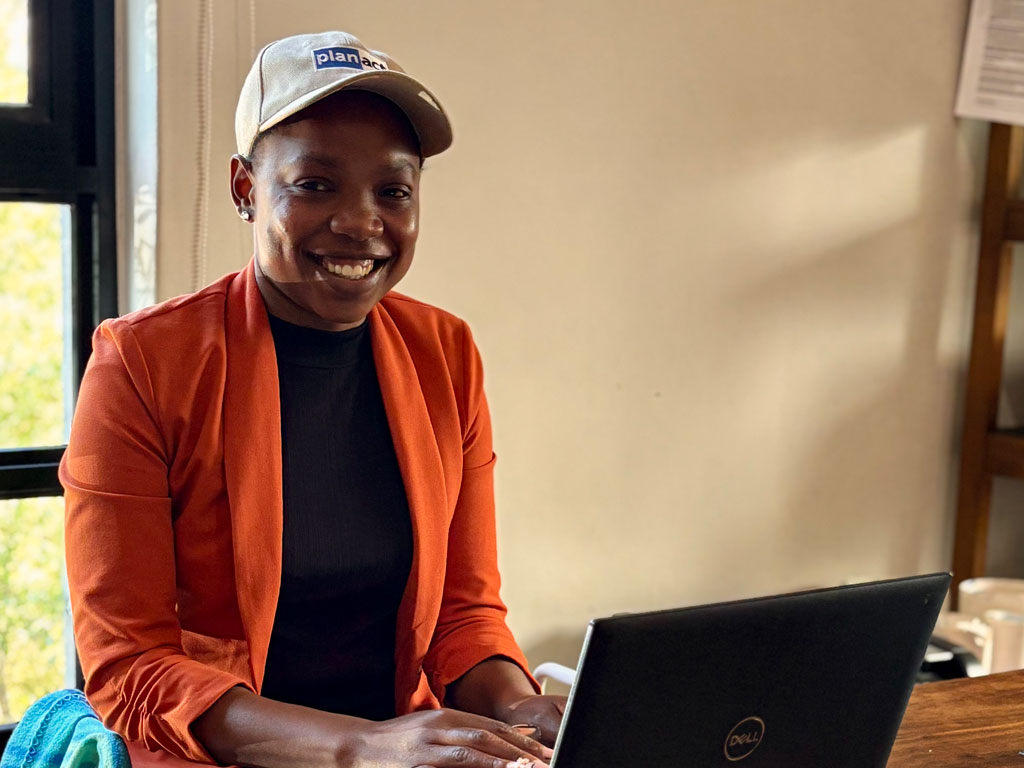
Itumeleng Tsotsetsi
Tumi has been an intern at Planact since 2024 and has worked as a research assistant to Fixed on this history, building her own knowledge and skill as a researcher and her institutional knowledge of Planact and the history of local government and community in South Africa. Tumi has spent hours and hours in the formal and informal archives of Planact, embellishing the examples with texture and detail that bring the history to life.

Barbara Holtmann
Barbara is a Director of Fixed.Africa and has provided editorial support for the project. She has leadership experience in the NPO, national government and private sector accumulated over the past 30 years. Barbara developed the ‘What it looks like when it’s fixed’ methodology now the basis of the Fixed consultancy.

Robyn Cook
Robyn is an Associate Professor of Design Ecologies in the Department of Graphic Design at Falmouth University. Her research is focused on the epistemics of power and design and the use of language, identity, economics, technology, education in design. Robyn has brought her thoughtfulness and expertise in packaging archival and historical material for contemporary engagement to the graphic design of every element of this project.
REFERENCES
Each article contains its own references. Repeated reference was made to two major collections:
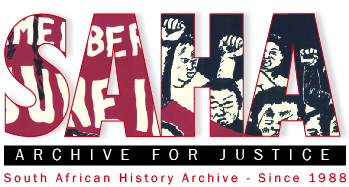
South African History Archive (SAHA)
The Planact archival collection from 1985 to 2005 is housed at SAHA at the University of the Witwatersrand, Johannesburg. The archivists there have patiently supported the research efforts for this project and enabled digitisation of the elements found in and around the articles.
Planact, South African History Archive (SAHA), University of the Witwatersrand, South Africa.
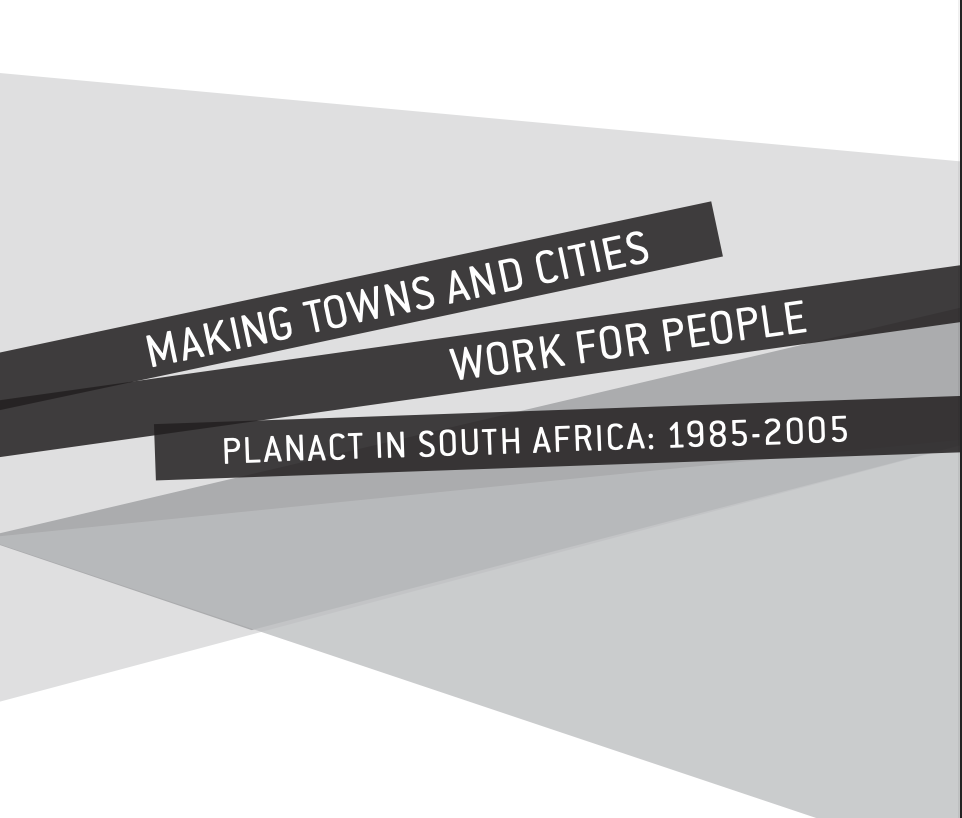
Making Towns and Cities Work for People, Planact in South Africa: 1985 – 2005. Edited compilation of contributions from various authors. Self-published, Johannesburg, 2005. The whole book appears here and individual chapters appear related to each article on this webpage.
